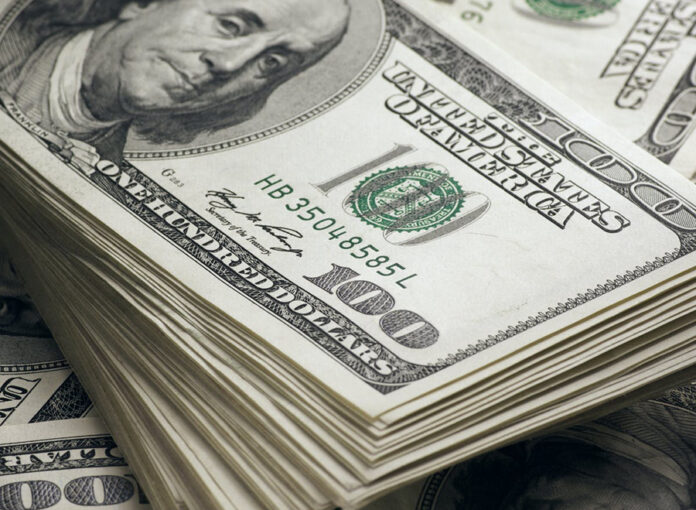The foreign exchange reserves have dropped to $33.79 billion as at June 17 as demand for dollars for imports and other essential needs thickens.
Previous foreign reserves movement showed that on April 1, the reserves stood at $34.85 billion and $34.43 billion as at May 17, data from the Central Bank of Nigeria (CBN) website showed.
At the weekend, the naira also weakened against the dollar on the Nigerian Autonomous Foreign Exchange ( NAFEX) rate window, dropping to N411.75 from N410.80 to dollar.
However, at the parallel market, the naira shrugged off the drop in reserves and rate depreciation at the official market to record marginal gains, trading at N498 to dollar, stronger than N505 to dollar the previous week.
Inflation also fell slightly to 17.93 per cent in May from 18.12 per cent in April, though it remains well above the CBN’s target range of between six per cent and nine per cent.
The World Bank said Nigeria must do more to make its exchange rate system clearer, despite recent efforts to move to a more flexible regime.
The bank said Nigeria’s request for a $1.5 billion loan will hinge on the progress the country makes on its exchange rate system management with analysts predicting sustained pressure on the naira in the coming days if dollar scarcity persists.
The reserves decline, has also been attributed to drop in diaspora remittances due to patronage of illegal remittance channels by Nigerians in diaspora.
CBN Governor, Godwin Emefiele said that Nigeria, like other emerging market countries and countries reliant on oil exports, the retreat by foreign portfolio investors significantly affected the supply of foreign exchange into the country.
“With the decline in our foreign exchange earnings and successive exchange rate adjustments, the CBN has continued to implement a demand management framework, which is designed to bolster the production of items that can be produced in Nigeria, and aid conservation of our external reserves,” he said.
Emefiele explained that due to the unprecedented nature of the shock, the apex bank has continued to favour a gradual liberalisation of the foreign exchange market in order to smoothen exchange rate volatility and mitigate the impact which, rapid changes in the exchange rate could have on key macro-economic variables.
This, he said was in line with international best practices in countries where managed float arrangements are in operation.
“At the same time, measures are being taken by the authorities to improve our non-oil exports and other sources of foreign exchange. These measures have helped to prevent a significant decline in our reserves,” he said.



